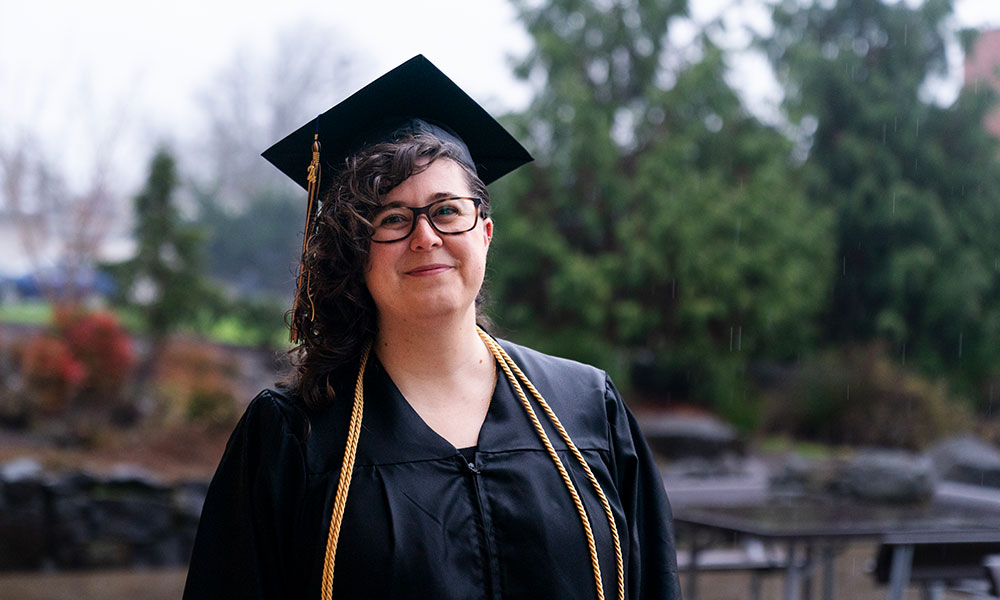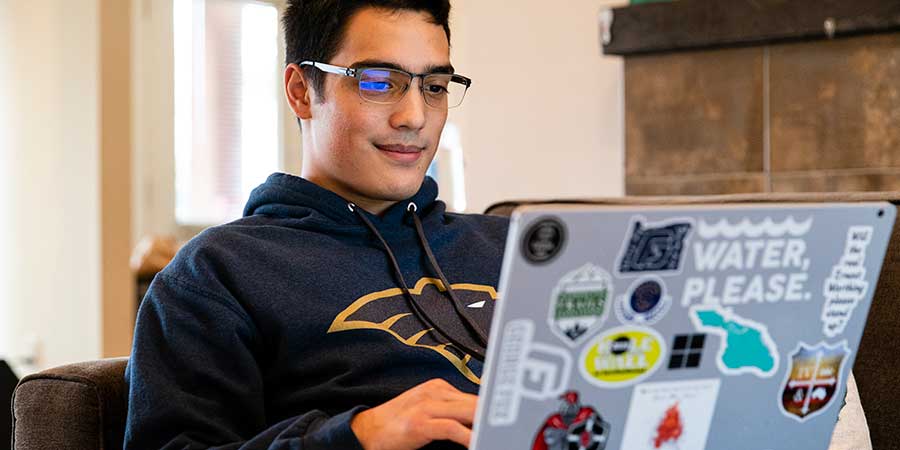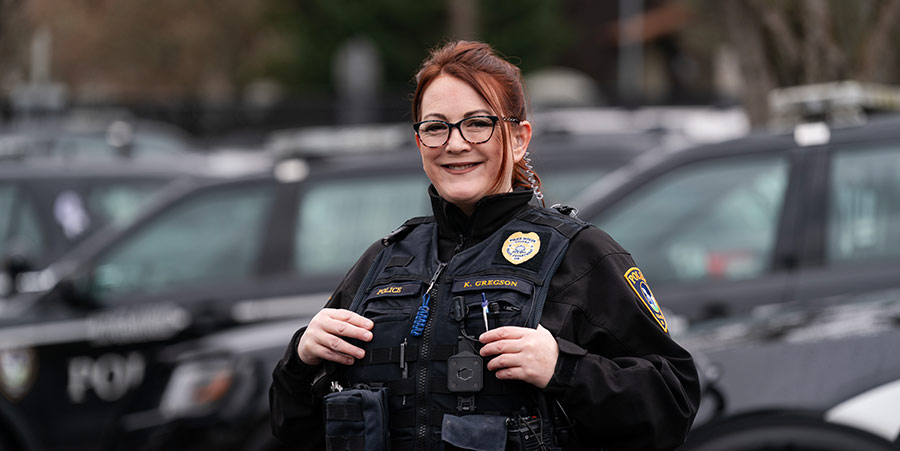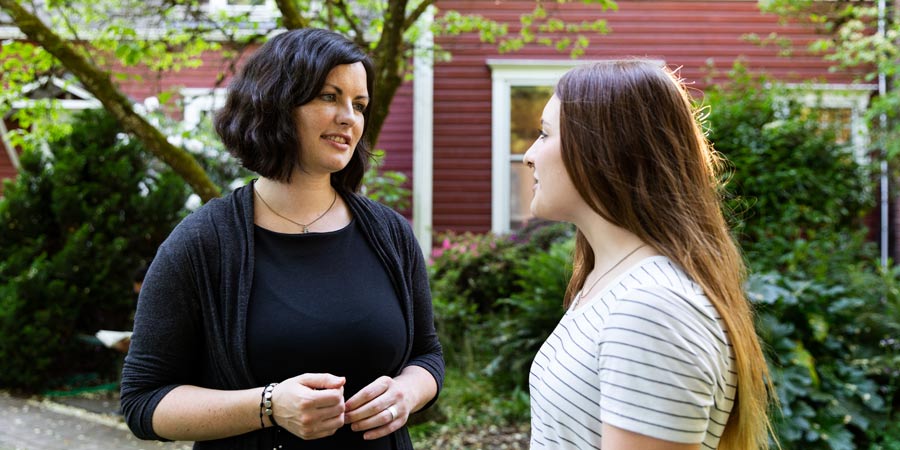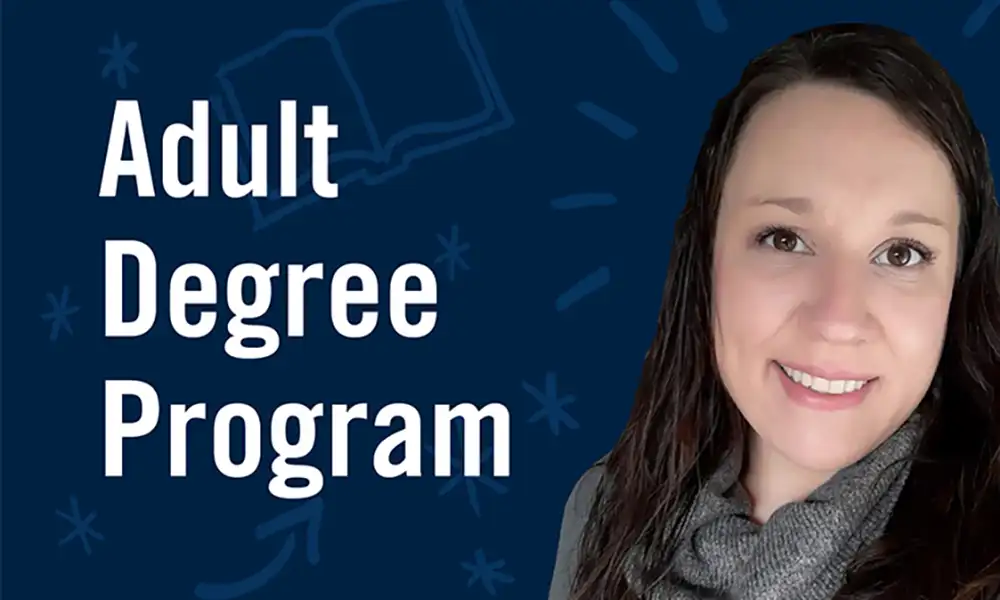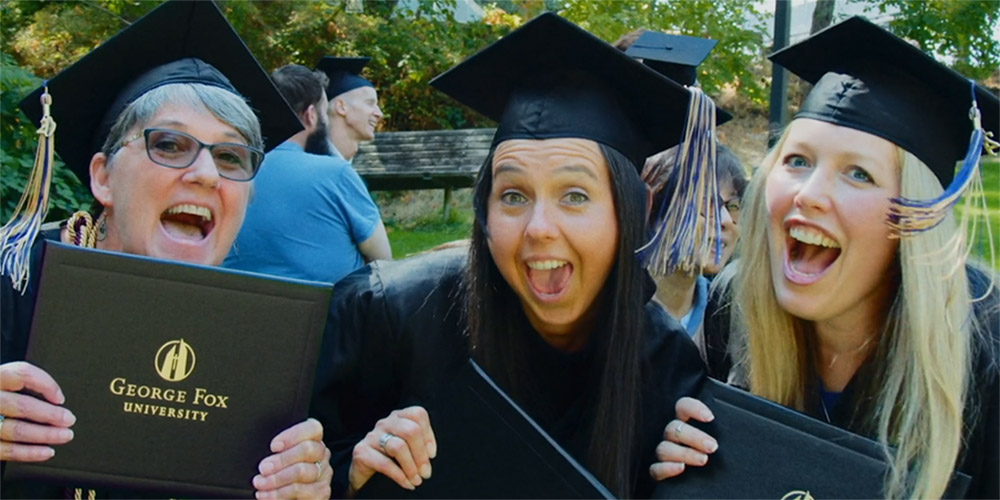
The Power of Learning in Community
A cohort, by definition, is “a group of people who share a characteristic” (Cambridge English Dictionary). In education, it usually means a group of students who start a program at the same time.
But – as Debby, Doug, Kasondra and Tracy discovered – a cohort experience can be something entirely richer and more impactful.
“This is community, and we go together.”
“I never knew what ‘cohort’ meant,” Debby says. “I think George Fox definitely demonstrated with our cohort that this is community, and we go together.”
Like many adult learners, Debby, Doug, Kasondra and Tracy had to overcome numerous personal and professional challenges – balancing school and work, family and finances, and fears of not being able to see the program to the end. Their small cohorts acted as crucial support systems and safety nets as they pressed on toward graduation.
“I think it's important that you have familiar people on the same trajectory,” Doug says. “We were there for one another and helped each other, almost like a family unit.”
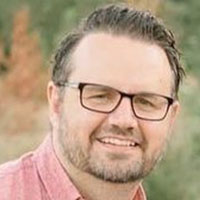
Doug Higgs
Director of IT. Graduated with a bachelor’s in management and organizational leadership in 2021.
We were there for one another and helped each other, almost like a family unit.
Doug recalls a couple of late nights when he wondered if he would be able to finish the program, with other pressing concerns like family medical issues and major work projects popping up. But when he expressed any doubts, his cohort wouldn’t let him think of quitting.
“It didn't feel like we were on our own journey. It felt like we were on this journey together,” Tracy says. “We didn't want to see anyone fail. There is a connection and an accountability there. You're not on this journey as a solo learner; you have others who will carry you when you need to be carried.”

Tracy Maltby
Associate Vice President of Investments. Graduated with a bachelor’s in management and organizational leadership in 2021.
You're not on this journey as a solo learner; you have others who will carry you when you need to be carried.
Learning from others’ career and life experience
“I love that everybody comes from a different background,” Kasondra says.
“They're willing to share their knowledge, and I'm ready to absorb it. I believe that I'm a better person because I've gotten the opportunity to learn from my professors, but also, to learn from my fellow cohort members.”
Cohorts bring together people from a wide range of careers and walks of life. Some have managed others or owned their own businesses, and many have a wealth of experience in the technology, financial and accounting sectors.
“You kind of shine, and you build your confidence,” Doug says. “You're coming to the table with a skillset that someone else may not have, and you're trying to solve problems together.”
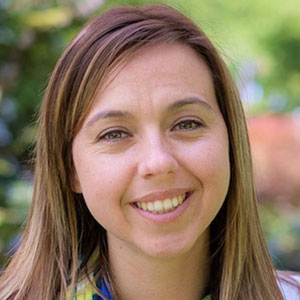
Kasondra Silva
Associate Director of Human Resources Operations. Graduated with a bachelor’s in organizational leadership and project management in 2021.
I believe that I'm a better person because I've gotten the opportunity to learn from my professors, but also, to learn from my fellow cohort members.
Understanding your strengths
Not only does a cohort provide support from peers and a professional network, it also serves as an opportunity for students to see their strengths played out in the context of a team.
“So many people come into the program wondering, ‘What do I have to offer?’” Tracy says.
“And then your strengths are slowly drawn out. And you feel like, ‘I matter. I do have something to offer. I am a person that is going to make a difference.’”
Working together on projects gives students the opportunity to discover and develop strengths they might not have recognized in themselves. Many cohorts adopt a “team” approach to finishing the program, communicating throughout the week via text messages and offering help to others outside of class in areas where they have expertise or natural strengths.
“You began to see each other's giftedness,” Debby says. “I liked to proofread, and she liked to do the stuff to make it look pretty on paper. And we all just came together in a way that made the production really full and robust.”
Gaining confidence in community
“People would say, ‘I loved your paper. I loved what you said about this,’” Debby recalls. “Or, ‘I'm really struggling with this, and I think you could help me.’”
“I can't imagine going to college and being alone in my studies. I don't think I would've made it.”
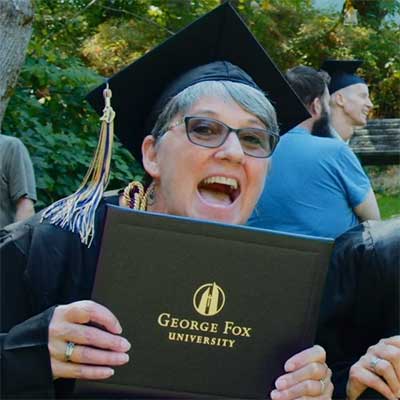
Debby Lute
Executive Director at a regional non-profit. Graduated with a bachelor's in social and behavioral studies in 2019.
They all believe in me, and I believe in them. I've got to be there for them as much as they're there for me.
Progressing through courses with the same group of people allows the group to build trust and affirm one another’s work. Students notice growth in one another and come to value the diverse perspectives their cohort members bring to the table. In many cases, a powerful culture of encouragement and confidence emerges.
“I think for a lot of us, we haven't had that experience before,” Tracy says. “To have that connection with adults who are saying, ‘You can do this. You will do this. And you are valued.”
“They all believe in me, and I believe in them,” Debby says. “I've got to be there for them as much as they're there for me.”
Learn more about George Fox’s accelerated online bachelor's degrees

